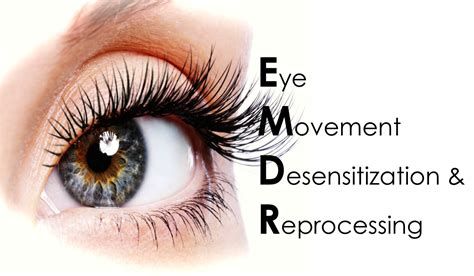Eye Movement Desensitization and Reprocessing or EMDR is becoming more and more popular as a form of treatment, but is it really effective or an overhyped form of therapy?
The vast majority of research into the topic, as well as personal experience from therapists and patients alike using EMDR, is that it is indeed a very powerful and effective form of therapy which has the power to change many people’s lives for the better. It is especially effective in treating trauma and any conditions which ultimately stem from trauma, like addiction, anxiety and depression.
This has been proven time and time again by people’s own experience undergoing EMDR, plus controlled research studies into it’s effectiveness. For this reason EMDR has many vocal supporters among therapists and patients who have seen the rapid beneficial impact it can have in treating trauma. It is also a recommended treatment for trauma by the WHO.
In this article we will try and summarize the main evidence in support of the effectiveness of EMDR, both from anecdotal accounts and scientific studies. There is more than enough evidence to support the conclusion that it can be a very effective form of therapy for a large number of people.
Contents
Summary of the Research Into EMDR
There is now a large body of research into EMDR which prove it’s effectiveness in treating a growing number of psychological conditions. It is primarily designed for treating trauma but it can also be used in a wide array of disorders, since so many of them are ultimately derived from trauma when delved into deep enough.
Here is a summary of some resources gathering together different research studies into EMDR:
- Interview with EMDR founder Francine Shapiro on it’s effectiveness.
- Seminar by Francine Shapiro going through the EMDR process and research showing it’s effectiveness treating different kinds of psychological conditions.
- See the video above where Dr Andrew Leeds goes through some of the research into the effectiveness of EMDR
- More from Andrew Leeds on EMDR as a very effective treatment for addiction.
- Brief interview with addiction recovery center specialist on EMDR for addiction.
- The EMDR Institutes’s page gathering together research papers on EMDR.
- For research papers on the REM sleep hypothesis on how EMDR works so powerfully:
-
- Stickgold (2002) on the REM sleep effect of EMDR on the processing of memories.
- Stickgold (2008) on the effect of REM sleep and bilateral stimulation in the processing of memories.
-
- See also our individual articles on EMDR for Trauma, Anxiety, Phobias, Addiction and Depression for more on each of these.
Case Studies of Patients
Perhaps the strongest evidence in support of EMDR comes from patients who have had success using this form of therapy. There are plenty of such success stories online and we have picked out a few below. Click on the links to for video account from each of the former EMDR patients.
- Account of the life changing effects of EMDR from a patient of James Alexander in Australia.
- Testimonials on the effectiveness of EMDR from several female patients.
- 30 minute interview on an EMDR success story.
- Trauma expert Vivian Kulaga’s own account of using EMDR.
You can see from these accounts that EMDR does have the potential to drastically change people’s lives for the better if trauma has been a significant part of their life history and they are still struggling to move on from it.
When Might EMDR Not Be So Effective?
EMDR has been primarily designed as a treatment for trauma, and is very effective in this regard. It can also treat other conditions which often stem from trauma, like anxiety, depression, addiction and phobias. Follow the links for our articles on using EMDR to treat these conditions.
However, EMDR has not been verified as an effective treatment for all mental disorders, and there may be some conditions which are best treated with other kinds of psychotherapy.
It is not as yet a mainstream therapy and so research into it’s effectiveness in treating different kinds of psychological disorders is not as plentiful as other, more widely used forms of therapy. See here for a summary of the research papers into EMDR so far.
Similarly, for EMDR to be effective, the person has to be able to focus and be present with any trauma that comes up, whilst also being able to focus on the external bilateral stimulation provided by the therapist. If they cannot stay present and maintain this dual focus of attention, it may be difficult for full processing of trauma to occur.
However the therapist will often lay some prepatory groundwork to ensure there is a better chance of success in this regard, perhaps giving the client mindfulness or other exercises to help them better stay present in the moment if this is something they may struggle with.
In a very small number of cases, the scale of the trauma being confronted may be too much for the person to handle at that point in time and they may have to stop the process. Practitioners tend to report this is very rare but can happen and safeguards are built into the process to allow the client to stop at any time.
However, the vast majority of patients can cope fine with whatever emotions come up. Whilst EMDR does unavoidably involve a person revisiting some of the most difficult experiences of their life, they are doing so in a safe, controlled environment and with a sense of power and control that wasn’t there when the trauma initially happened.
The Bottom Line on EMDR
In summary, EMDR is likely to be effective if you are suffering from any kind of trauma, with this being defined in the widest sense of the word to include any unpleasant life experiences which you have struggled to fully psychologically digest and “get over”.
It has also been proven to be effective in treating other conditions in which trauma is often a crucial core component or contributing factor, like addiction, anxiety, depression and phobias. This covers a very wide spectrum of psychological conditions so EMDR is indeed a very effective form of therapy which can potentially help a large number of people.
Experienced EMDR practitioner Dr James Alexander summed up his view up the effectiveness of EMDR like this:
The vast majority of people that I’ve ever done (EMDR) with wind up getting somewhere a whole lot better as a result. It’s the most effective thing I’ve ever seen in psychology and one of the few things I feel really confident about introducing people to.
Dr. James Alexander






